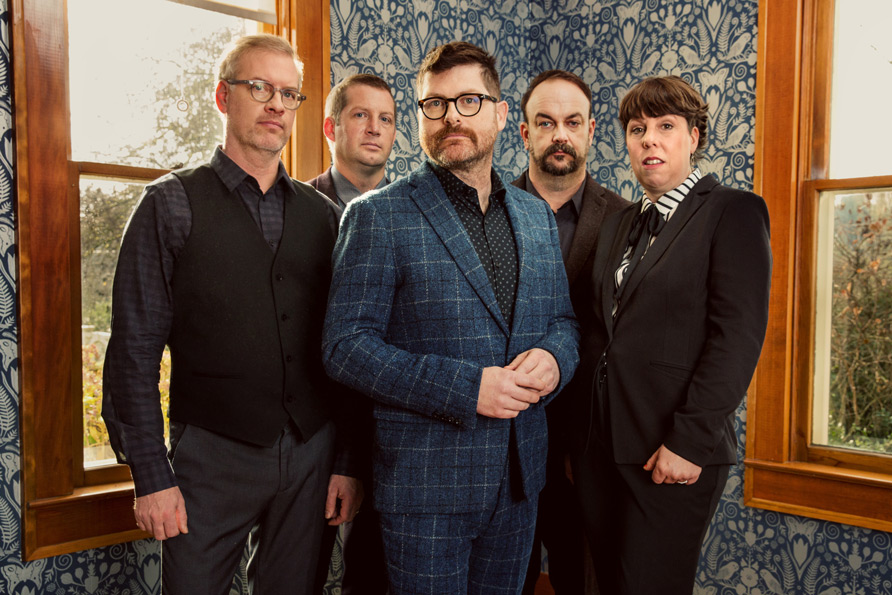The Decemberists World Tour Includes a Stop in S.B.
Portland Indie Band Brings Powerful Anthems to the Arlington

With songs featuring epic, story-like lyrics set to multi-instrumental orchestrations, Portland, Oregon–based folk group the Decemberists have been enchanting listeners for nearly 20 years. Their music features a wide variety of unique instruments, from the accordion to the hurdy-gurdy, with many songs centered on historical events and folklore, and the group has a particular knack for crafting powerful anthems to sing along to. The band’s lauded track “Down by the Water” off its whimsical 2011 album, The King Is Dead, has been compared to the music of Bruce Springsteen and Neil Young and earned a Grammy nomination for Best Rock Song.
On March 16, the band released its eighth studio album, I’ll Be Your Girl; a few days prior, I spoke over the phone with frontman (and raconteur) Colin Meloy, who provided insight into the group’s inner workings.
Listeners have been waiting with great anticipation for I’ll Be Your Girl. Can you describe the genesis of the album? Was there any specific inspiration for this new collection of songs? We didn’t have a prescribed intention going into it or an idea what the shape would be. We’d been playing a few of the songs live for the past year and a half, but we ended up scrapping those arrangements. When we got into the studio and started to work, things changed pretty drastically. We established changes and obstacles to our normal patterns of working that would naturally disrupt the process and hopefully create something interesting, like working in a different studio and with a different producer.
Can you explain the songwriting dynamic of the group? Does everyone contribute to the lyrics and melodies? I write the lyrics, melodies, and chord progressions and typically demo them on my own with guitar and voice and send them to the band. Then we get into the studio and start working through them, and at that point people offer ideas, and we build from there. That becomes a more collaborative process, but the songs themselves pretty much stay the same.
Each of your songs has a unique subject and feel. How do you go about choosing what to write about? It just comes from all different places. I feel that in the creative process. I send my kid to a Waldorf preschool, and they have this idea of an “out breath” and an “in breath” — they take breaks during the day, where activities would be the out breath and the in breath would be the quieter times, and I feel like the creative process is important that way. The out breath is the production, and it’s creative, whereas I think it’s easy to forget the in breath is just as important, and that’s being receptive to ideas, reading books, watching movies, listening to other people’s music. That’s all really important and invariably finds its way into songs.
Does your home city serve as source of inspiration? I think the Pacific Northwest, the environment, deepens what we make. We feel tied to the city. I think the city has sort of grown around us, and we’ve been a part of that. We’ve all established Portland as our home base, and we love and hate [it], as most people do with the cities they live in.
What has been a highlight of this 17-year-long journey? Getting to a point where I was able to meet some of my heroes and weathering all of the ups and downs that a band might have together as friends and compatriots is its own reward. We have so much history together now that it feels indelible.
4•1•1
The Decemberists perform Friday, March 23, 8 p.m., at The Arlington Theatre (1317 State St.). Call (805) 963-4408 or visit thearlingtontheatre.com.



